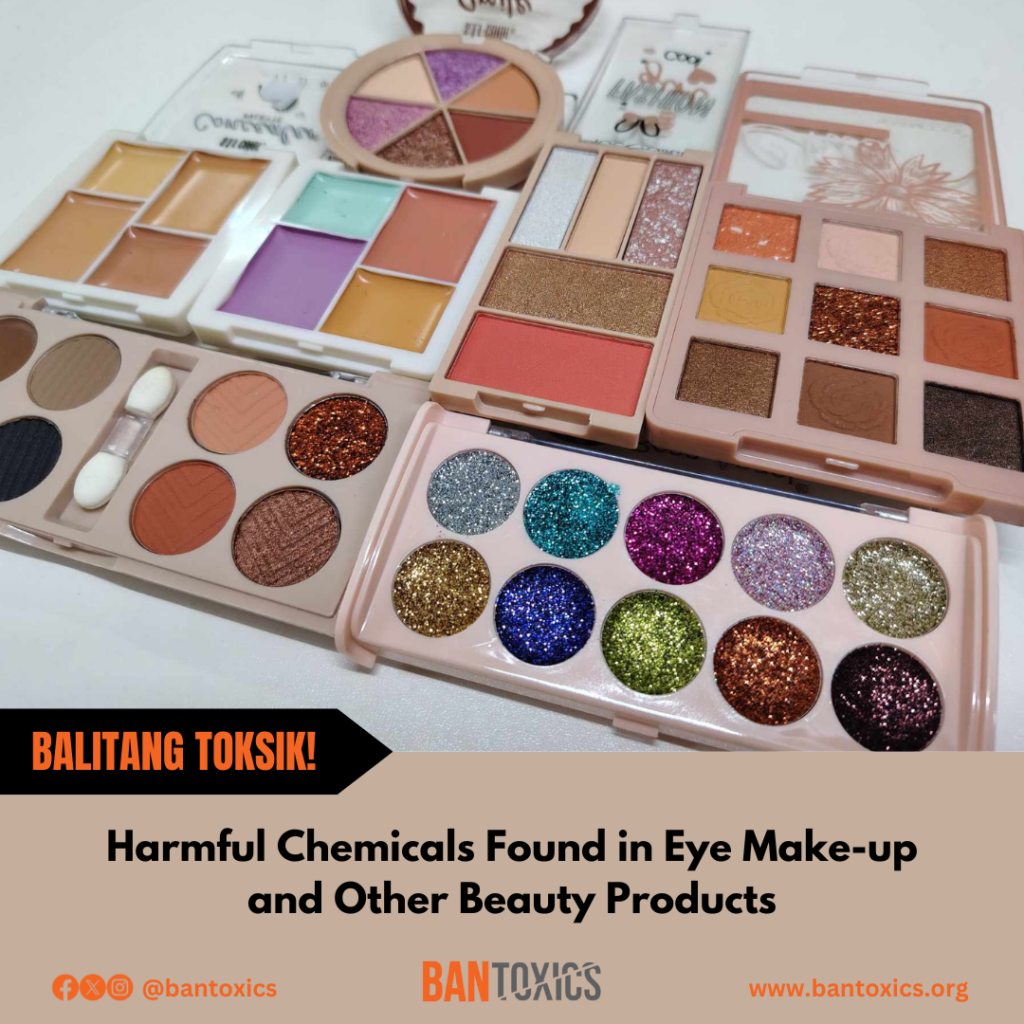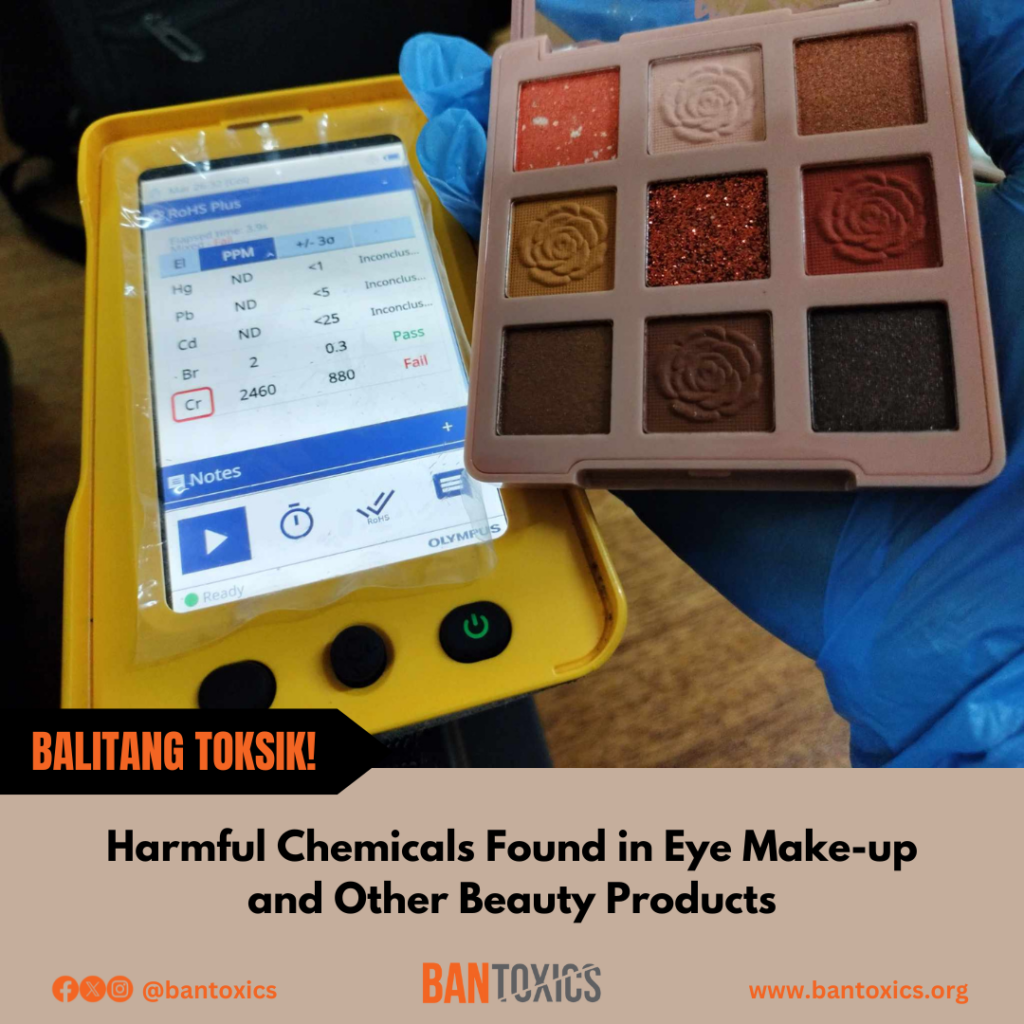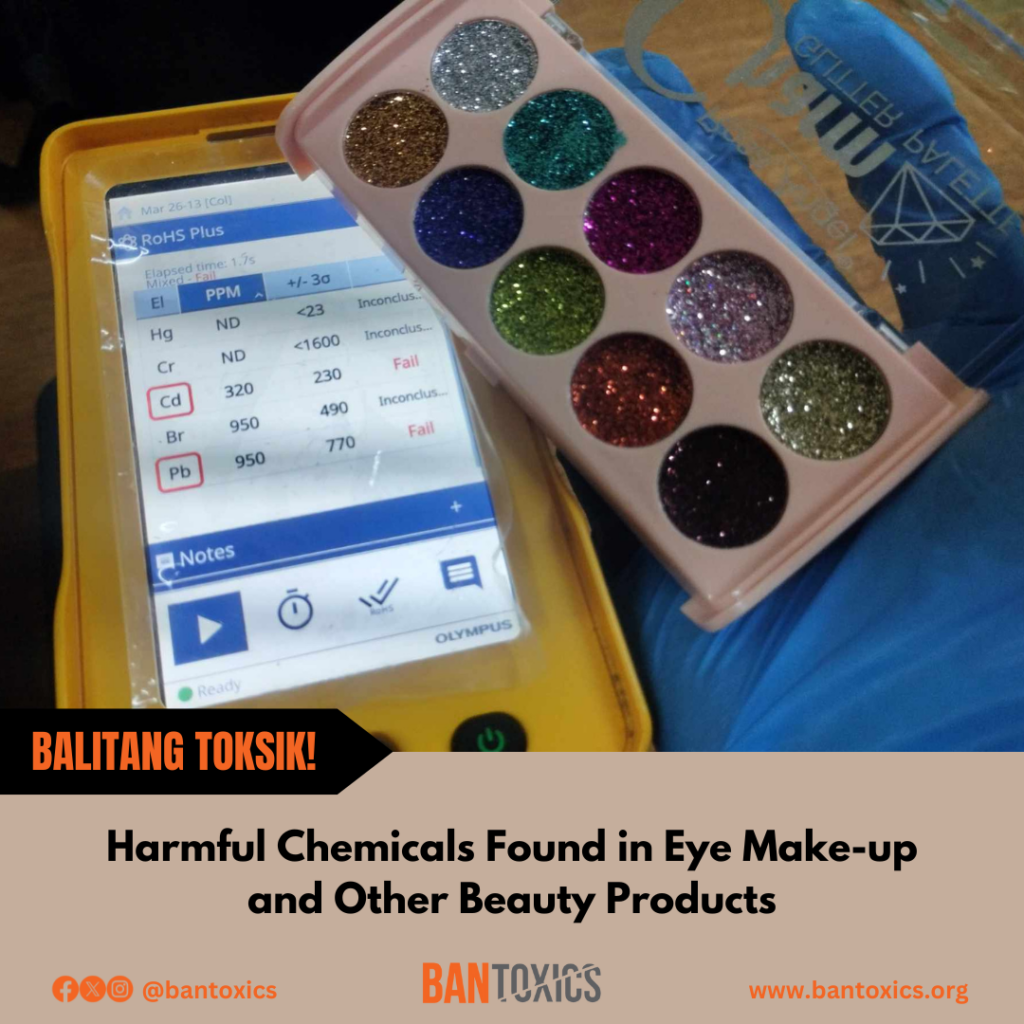BALITANG TOKSIK! | 28 March 2025

Toxics and pollution watchdog BAN Toxics, promoting consumer protection and environmental health, issued a warning against beauty products containing toxic chemicals in observance of the month-long campaign to protect women from exposure to harmful substances.
As part of its safe cosmetics campaign, the group purchased seven eye shadow products from the “Presyong Divisoria” store in Taguig City and beauty shops in Caloocan City, priced between P60 and P150. The samples were screened using a Vanta C Series XRF chemical analyzer and were found to contain antimony, arsenic, chromium, cadmium, lead, and mercury. Two samples also listed propylparaben and methylparaben on their labels.
The tested beauty products were found to contain chromium up to 2,460 parts per million (ppm), lead up to 950 ppm, mercury up to 360 ppm, and cadmium up to 320 ppm—exceeding the regulatory limits set by the ASEAN Guidelines on Limits of Contaminants for Cosmetics under the ASEAN Cosmetics Directive.

Previously, the group raised concerns over the proliferation of unregulated beauty products such as lipsticks, skin whitening creams, and personal care products sold in public markets. Most of the samples failed to comply with existing health and safety standards due to the presence of toxic substances. Some products also had incomplete or missing labeling information, raising concerns about the possible presence of hazardous chemicals.
According to the Campaign for Safe Cosmetics (CSC) of the Breast Cancer Prevention Partners (BCPP), heavy metals are present in a wide range of personal care products, including lipstick, whitening toothpaste, eyeliner, and nail polish. Some metals are intentionally added as ingredients, while others are contaminants. Exposure to these metals has been linked to health risks, including reproductive, immune, and nervous system toxicity.

“Lead is a potential impurity in many color cosmetics, including lipstick. Lead is a well-known and proven neurotoxin that has been linked to learning, language and behavioral problems, while mercury is linked to nervous system toxicity, as well as reproductive, immune and respiratory toxicity, and is a recognized environmental health concern by numerous national and international government bodies.”
“The presence of toxic chemicals in cosmetics and personal care products persists, posing risks to both public health and the environment. The sale of unregistered and unnotified products in the market must stop to protect consumers from toxic chemical exposure,” said BAN Toxics Advocacy and Campaign Officer Thony Dizon.
BAN Toxics urged beauty shop owners to stop selling unnotified and prohibited cosmetic products and to exercise due diligence in ensuring compliance with product safety regulations to protect consumers from toxic chemical exposure.
“Consumers have the right to safe cosmetics, as well as transparency and traceability of chemicals in cosmetic products,” the group added.
The Food and Drug Administration (FDA) has issued multiple public health warnings against cosmetic products that fail to meet regulatory standards, including eyeshadow, lipstick, makeup, and concealers. Products that have not undergone the FDA’s notification process cannot guarantee quality and safety, making them potential health hazards. The FDA advises consumers to verify if a cosmetic product is notified by searching for its name on the FDA website (www.fda.gov.ph) before purchasing.
BAN Toxics reiterated its call for stricter enforcement actions against the illegal trade of banned and restricted beauty products and for stronger measures to protect consumers from toxic harm.
To improve consumer safety, BAN Toxics will push for greater transparency and traceability of hazardous chemicals in cosmetic manufacturing and advocate for the enactment of a Safe Cosmetics Law in the country. #
